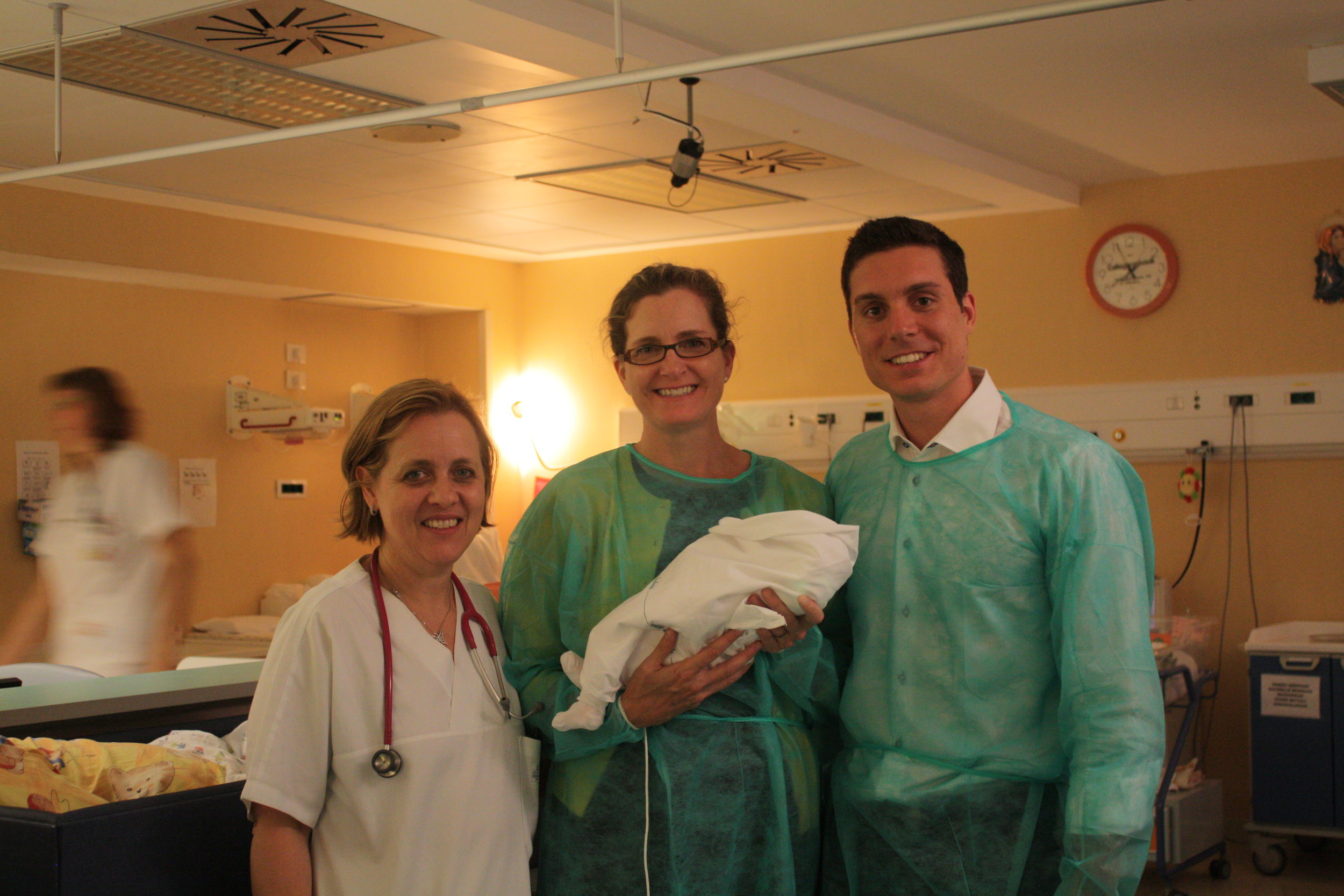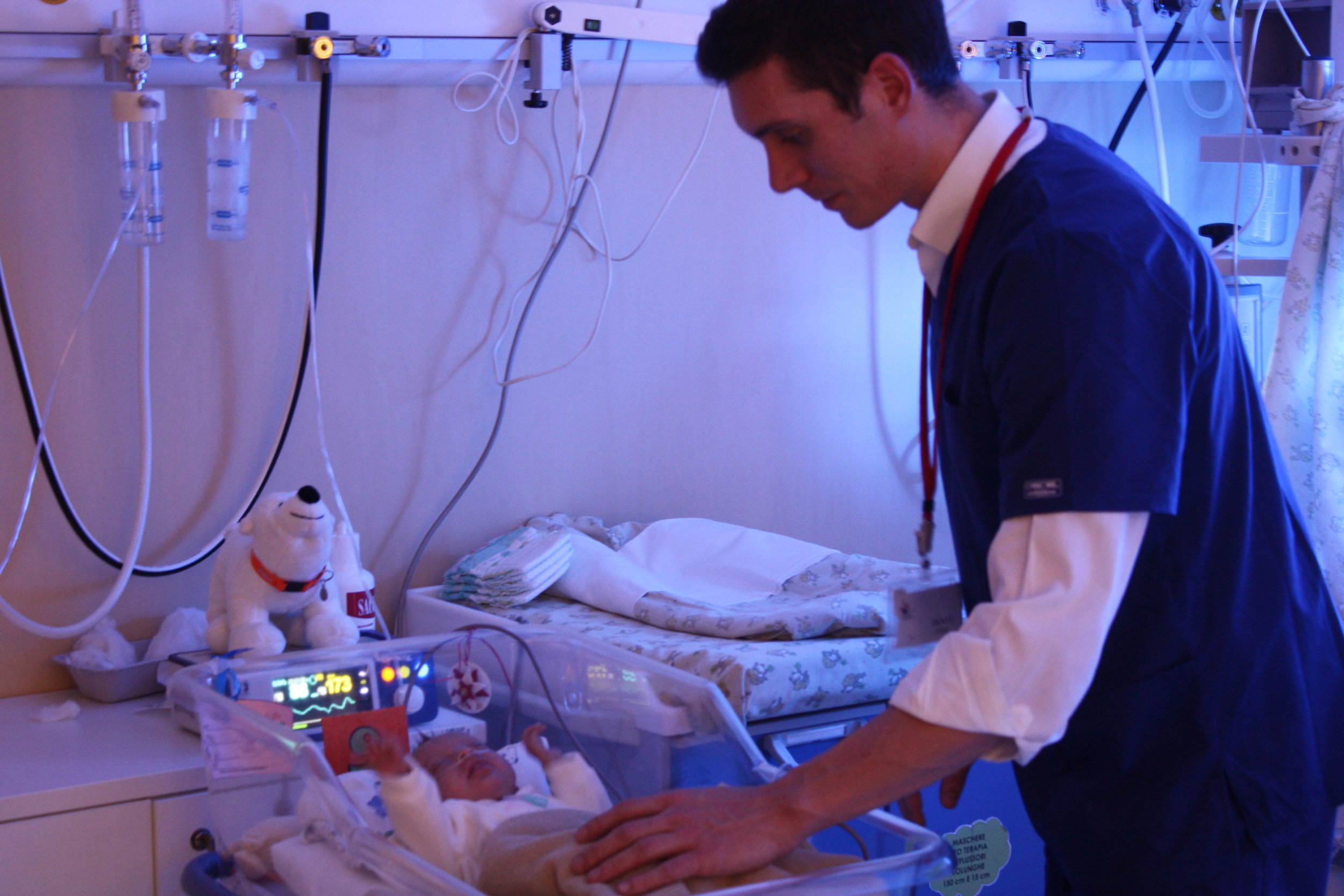
THE GENOTE BLOG
Inspiring, creating and living Health Music
MUSIC, TERM AND PREMATURE BABIES
The beginning of life is often a very stressful experience, even for otherwise healthy babies. Prior to birth, all the infant knows is the warm, safe, and quiet surroundings of being in the womb. The beginning of life brings cold, danger, and noise. All of the noise, particularly the hospital environment, can be detrimental to the newborn receiving the sleep it needs.
Specifically referring to studies conducted in Neonatal Intensive Care Units, we know the importance of sound.
Ås reported by Rich Haridy in New Atlas, on May 29th, 2019, an important study at the University of Geneva, shows that music can help build the brains of premature babies.
At Genote, Health Music is a valuable resource for reducing stress and increasing stability in newborn children. The existing research did not make clear what types of music would be best for this purpose.
Sixteen newborns were exposed to the Genote Sleep Music Protocol for thirty minutes twice per day. Their heart rate, blood oxygenation, pain scale, and behavioral states were measured within a half hour of exposure to the music.
The majority of the newborns showed improvement in their capacity to self-soothe and transition to a more relaxed state. Their sleeping patterns also improved. The positive impact of structured music listening on healthy newborns indicates the need for further study on the impact structured music could have on sick newborns.
Hear some of the new music used at the University of Geneva
See the video from Venice NICU
Genote at the Vicenza Hospital
These experiences give us a firm hope and a renewed resolution to advance music’s collaboration with medicine.
After months of preparation, we finally get to start our music protocol at the Vicenza Hospital! After getting cleared by the Internal Review Board, we have the opportunity to test our entire procedure for pain management with babies for the first time.
The randomized study was designed to evaluate the effects of a Structured Music Listening Protocol on pain reduction for newborn babies that are going through a metabolic screening test 36 hours after birth. The test requires the nurse to prick a baby’s heel and squeeze some blood on a special paper to be sent to the lab for the analysis. Since newborn babies don’t have a high volume of blood, the pressure required to get enough blood out for the test can go on for several minutes.
Ouch.
Our hypothesis was that the babies receiving the music intervention, in addition to the standardized technique, might show a beneficial effects on pain reduction and pain management.
The morning the study was to begin, we had a brief meeting to introduce the research implementation staff to the procedure. The staff was represented by a pediatrician, a nurse, and two obstetric students. After the doctor described the procedure and Edoardo Guerra, our CSO and resident psychologist, presented some important aspects of the music methodology, we entered a small room selected for its low sound level.
Each of us were very focused and anxious for the first trial. The team of nurses selected two babies at random. The first received the procedure as per the standard hospital procedures (without music) and the second received the an additional Structured Listening Protocol. We paid close attention to everything that could affect the baby in the study: the type of light, sound level, distance of the speaker for the music, etc. Our preparation was scrupulously evaluated, up to the moment we were ready for our first baby.
The nurses brought the first baby inside the room with his cradle. He was sleeping and in a very quiet state. They placed him on the changing table and started the restraint procedure (wrapping technique and a pacifier with sucrose). The nurse pricked the baby’s heel and started squeezing the blood out for the analysis. The baby’s heart rate changed significantly and he went from a state of sleep to being agitated and fussy. The nurses were more tense, too. By the end of the several minute procedure, the baby was agitated and tired.
Then it was the second baby’s turn. He was sleeping too, but after he entered the room he started to wake up grumpily. The nurses did the same procedure, taking the same amount of time as they did with the other baby, but this time they turned on the Structured Listening Music Protocol. After they turned the music on the room’s environment changed completely, going from a harsh/cold medical room to a familiar and more qualitative care environment. The music was imposing they baby’s rhythm, emotion, and beauty on us. But more importantly, it was affecting the baby too. After just a few seconds of music, he listened to it, he turned toward it, and gradually returned to a quiet state. The nurse continued the procedure, and the baby never changed his quiet state throughout the entire procedure. The nurses were more relaxed and the baby was put in his cradle again and returned to his mom.
We won’t know the official results from the study at the Vicenza Hospital for quite some time, but these experiences give us a firm hope and a renewed resolution to advance music’s collaboration with medicine.
To keep up with more Genote™ studies and find opportunities to apply our music albums to your own medical experience, follow this blog and check out our website at www.genotelab.com.
3 Powerful Ways Health Music Can Enhance Athletic Performance
What if I told you that listening to expertly selected music compositions, in specific moments of your physical exercise could improve your health, recovery and physical results?
What if I told you that listening to expertly selected music compositions, in specific moments of your physical exercise could improve your health, recovery and physical results?
Music is made up of both many individual components and, especially,relationships between those components. Like in chemistry, where different components create chemical reactions, in music, different elements, such as tempo, rhythm, instrumentation, can trigger different reactions from people like modify breathing patterns, generate positive emotions and many other effects on psychophysiological parameters.
I want to share with you some tips on how integrating Health Music in your daily physical exercise routine will improve your health and recovery. Whether you are an amateur or a professional, you can witness real change. Each of the therapeutic areas described below can be found in Genote with a variety of Health Music protocols to tackle and improve your training and personal health.
We can summarize that major psychophysiological mechanisms, dedicated to increasing physical performance are linked to music’s ability to regulate arousal, and direct and increase our capacity to focus while increasing positive emotional responses and feelings.
Stress Reduction
Practice, strenuous training, and physical activity are often associated with physical and mental stress related to fatigue, change of habits or pressure by competitions and required improvement. However, even if there is a positive side of stress, like cold eustress that allows us to be more reactive and ready to perform, having high levels of continued stress might cause serious health issues. Listening to music can decrease stress and anxiety, cortisol levels, heart rate and blood pressure in people of all ages. Genote Health Music is the largest collection of therapeutic sound and music protocols made available for health, and it is so powerful in reducing stress and anxiety that is currently incorporated both in medical interventions and mental health institutions.
Sleep and Recovery
Recovery is one of the basic principles of training methodology (Rushall & Pyke, 1990). Athletes work hard to prepare and perform successfully. Unfortunately, many ignore or forget the performance benefits and the injury protection derived by including recovery within their daily training programs. Listening to music after intensive exercise has been proven to decrease the time needed to recover (Eliakim et al., 2013). Additionally, the College of Music and Dance in Philadelphia discovered how music was found to decrease anxiety related to illness and medical procedures by increasing the speed and the quality of physical recovery.
Supercompensation theory, showing the role of recovery in athletic performance.
Focus and Motivation
Because music stimulates the reward system, changes mood and enhances focus, it is no surprise that it has been used to attend important competitions and performances. In a study conducted by Dr. Karageorghis and Priest a,b, in 2012 they showed how music lead a range of positive effects, in lowering the perception fatigue, increasing motivation and enhancing perceived energy levels of athletes during physical exercise. Studies also show how music can increase visual perception and visual attention in patients with damage in areas related to perception.
The Yerkes–Dodson law originally developed by psychologist Robert M. Yerkes and John Dillingham Dodson in 1908, dictates that performance increases with physiological or mental arousal, but only up to a point.
Training is a matter of balance, motivation and consistency. It is important to keep in mind the direct effect of your routine in the efforts of enhancing your athletic performance. Recovery is a key aspect in building athletic performance. Optimized recovery allows high intensity training and better focus in the execution.
The Importance of Early Auditory Experiences in Premature Infants - A Mom Testimony
My twins are almost 2 1/2 years old and have been listening to their Genote sound machine since they were infants. They initially spent 31 (my daughter) and 35 days (my son) in the NICU.
“A premature baby’s main challenges are represented by the immaturity of the infant that is thrown from the optimal environment of the mother uterus into a very uncomfortable place with sounds, noises, lights and painful procedures that prevent her recuperating and developing fundamental competencies for grow and health. The baby knows how to communicate and tell us many things, but she needs somebody to listen to her and look at her. (1)”
Preterm birth, is the birth of a baby at fewer than 37 weeks gestational age. It is a common condition that affected about 1 out of 10 babies (9.6%) in the US during 2016 (2) and is the most common cause of death among infants worldwide.
Because of the gravity of this situation and the possibilities that exposure to sound offers to preterm babies and their parents, Genote invested many years in research and clinical experiences to develop a method based on structured listening protocols designed to help the baby’s neurological development, improve sleep, pain management, and recovery. Optimized for the clinical setting as well as the home, the Genote system can be implemented by families or medical personnel during and after hospitalization.
Preterm babies that spend their first weeks or months in the neonatal intensive care unit (NICU) are deprived of the entire range of sounds that would come from their mothers. These absent sounds are mainly sounds they would be hearing while in utero; low-frequency bands of the mother’s voice and rhythmic bits from the mother’s heartbeat.
Countless studies reviewed by the Genote scientific team show the importance to protect the baby from a wide array of noises (including harmful white noise) while stimulating the auditory system with structured sounds and melodies that allow for proper stimulation, development of the auditory brain, speech and language acquisition. (3-5)
In our many stories of supporting and informing families struggling with this problem, we met many great mothers and strong babies that teaches us not only about the meaning of life but also of their great resiliency and the importance of the human interaction for their growth and development. Lately, we met Diana from Los Angeles, who decided to try Genote on her two premature babies. This is her testimony.
“My twins are almost 2 1/2 years old and have been listening to their Genote sound machine since they were infants. They initially spent 31 (my daughter) and 35 days (my son) in the NICU. The music has been so soothing to them and I believe it helps them understand melody that much more in their music class and in our life. I would highly recommend it to all newborns and napping little ones over white noise.
”
Thinking Aloud with Classical89
When Classical89 asked if they could feature us in their show, Thinking Aloud, we were excited and a little hesitant because, frankly, being interviewed on the radio can be really scary.
Fortunately, between the three of us, we could help each other out. We think the program turned out pretty well. Give it a listen!
When Classical89 asked if they could feature us in their show, Thinking Aloud, we were excited and a little hesitant because, frankly, being interviewed on the radio can be really scary.
Fortunately, between the three of us, we could help each other out. We think the program turned out pretty well. Give it a listen.
We were particularly delighted by our experience with Marcus Smith, the host of Thinking Aloud, because he grasped on to what we were trying to communicate very quickly. We could tell he lived for music, and was a strong believer in the power it might have on our lives.
When we talk to people about the Genote™ method, including our research studies, there is always a distinguishing moment recognizable on their faces when things start to click. It is one of the best parts of spreading the news: watching people’s cautious optimism about music’s effect on the mind and body be solidified into something a little more concrete. Usually when a person realizes the gravity of what we are saying, the eyes expand ever so slightly and the mouth opens just a little wider. For us, seeing the Genote™ moment happen to others is so resonant because it reminds us of how the project started in the first place.
Most of all, we were grateful to Marcus because he understood our big picture message: Genote™ music is a scientific, research-validated, quantified approach to music and medicine.
After the interview, we stayed for quite some time chatting off the air, talking about important music moments in each of our lives. He even showed us the impressive Classical89 library, an experience we won’t soon forget.
If you haven’t had a chance to check out Thinking Aloud, go over to their website and give the show a listen. It is definitely worth the time.
To learn more about our science, method and music, visit http://www.genotelab.com




















